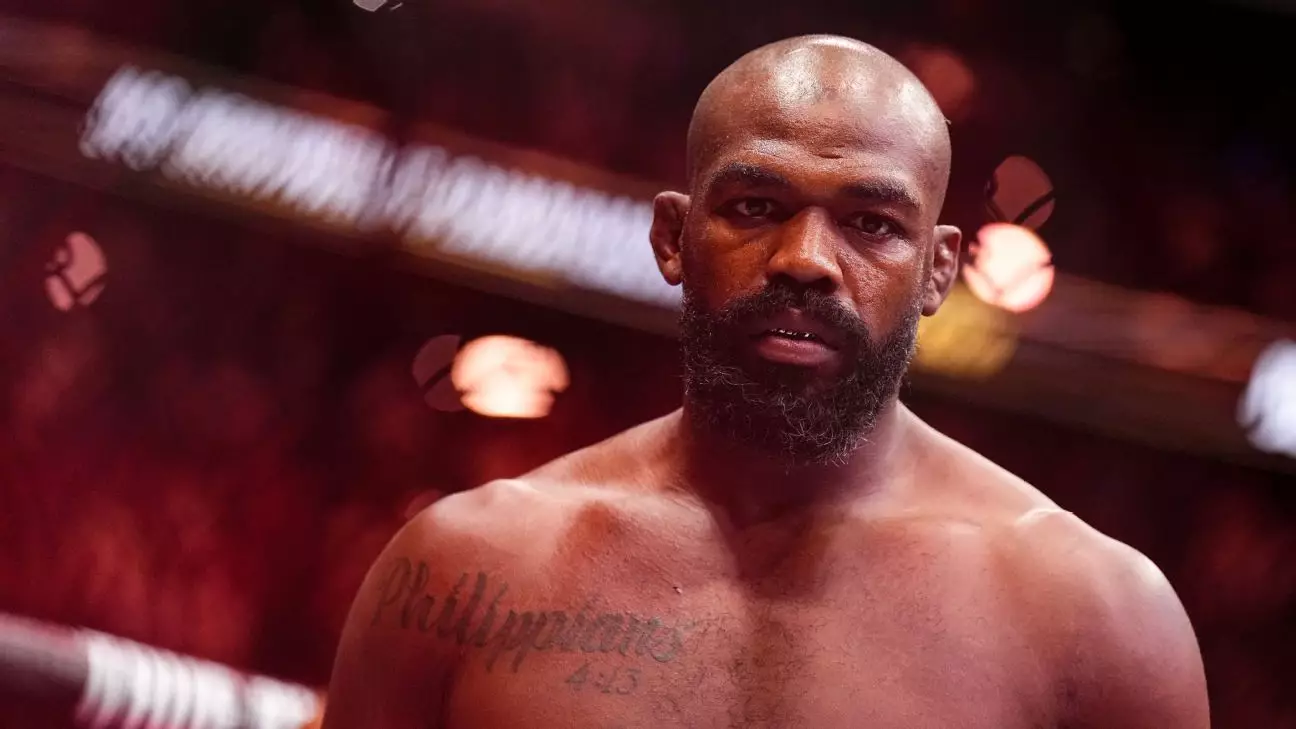On an otherwise uneventful night in Baku, UFC CEO Dana White shared the news of Jon Jones’ retirement—a moment marked not by reverence but rather by disappointment. In a sport where competitors grow their legacies with spectacular farewells, Jones opted for a muted exit that felt less like a curtain call and more like a whispered “goodbye” from a reluctant hero. White’s demeanor reflected not just the bittersweet end of a storied career, but also a sense of frustration at the unpredictable trajectory of Jones’ life in and out of the Octagon. Was it even surprising that Jones—often an enigma and notoriously unpredictable—chose this particular moment to step away? The answer, inevitably, is rooted in a deeper examination of his motives and methods.
The Selfish Genius: Navigating Fame and Isolation
Jon Jones is, without a doubt, one of the most remarkable figures in mixed martial arts history. However, with that immense talent comes an unprecedented level of selfishness that has often colored public perception of him. This relentless prioritization of his own needs has allowed him to navigate a tumultuous career, gaining accolades while steering clear of the emotional toll that typically accompanies such elevated status. Yet, this very aspect has incited widespread disappointment among fans and fighters alike.
One of the most egregious examples of Jones’ self-interest came when he opted for a fight against a past-his-prime 42-year-old Stipe Miocic over a more relevant match against interim champion Tom Aspinall. The latter match had been a long-awaited clash that promised to add depth to Jones’ rather complicated legacy. Jones’ dismissal of Aspinall’s capabilities—calling him unproven and, at times, annoying—serves as a perfect illustration of his quest for control, loyalty, and public perception, often at the expense of others.
Strings and Self-Preservation: A Masterclass in Control
One cannot discuss Jones’ career without acknowledging the many times he wielded his influence to rewrite narratives. His decision-making—a consistent blend of insistence on being in the driver’s seat—echoes throughout pivotal moments in his career. For example, the fallout with Rashad Evans highlights not only Jones’ desire to claim the spotlight but also the collateral damage he leaves in his wake.
Evans called Jones out for his perceived fakeness, a sentiment that has become increasingly relevant as the years have passed. Both men shared a camaraderie that deteriorated into a bitter rivalry, an enduring reminder that Jones’ selfishness rarely accommodates loyalty or friendship. Such instances crystallize a harsh reality: in Jones’ world, his aspirations trounce the collective dreams of those around him.
Yet, the UFC’s unwavering support through this self-destructive spiral raises a fascinating question: how do we measure the value of loyalty in an industry often driven by pure business? While Jones toyed with retirement rumors, the UFC remained steadfast behind him, choosing to prop up their most lucrative asset rather than cut their losses. This relationship, fraught with tension, illustrates both parties’ willingness to overlook ethical ambiguities in favor of continued profit.
Delayed Glory: The Risky Game of Stalling
The latter part of Jones’ career stands in stark contrast to its explosive beginnings. Once a veritable juggernaut who consistently fought the best, he has since limited himself to calculated bouts and vague promises of future confrontations. Fans regularly questioned whether he was afraid to face high-caliber opponents in their prime—a reasonable accusation given the small number of fights he has taken over the past decade.
Moreover, the ever-elusive megafight with Francis Ngannou epitomizes this cautious approach. Reports suggest that Jones demanded an exorbitant purse reflecting his desire to control the narrative. While this tactic is smart from a financial standpoint, it poses the risk of being perceived as ducking competition. Coupled with the retirement announcement, this strategy not only undermines faith in his legacy but also complicates fans’ emotional ties to their hero.
Retirement as a Tactical Move
The way Jones orchestrated his retirement—apparently during a critical moment when demands from fans were mounting—adds a new layer of perceived manipulation to an already complex narrative. In a sport that often treats retirement as an emotional, definitive end, Jones has cleverly indicated that he remains capable of using this tactic as leverage. Should he decide to return, his bargaining powers would be amplified even further.
In essence, Jones embodies a contradiction: simultaneously a pioneer and a pariah. His career is a stark reminder that greatness in sports can be as much about self-preservation as it is about unbridled talent. The fallout from Jones’ latest chapter might spark conversations about loyalty and sacrifice in sport, but for him, it’s just another calculated move in a high-stakes game.


Leave a Reply